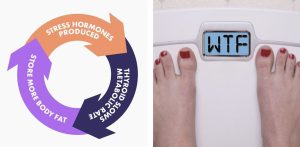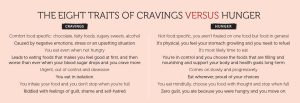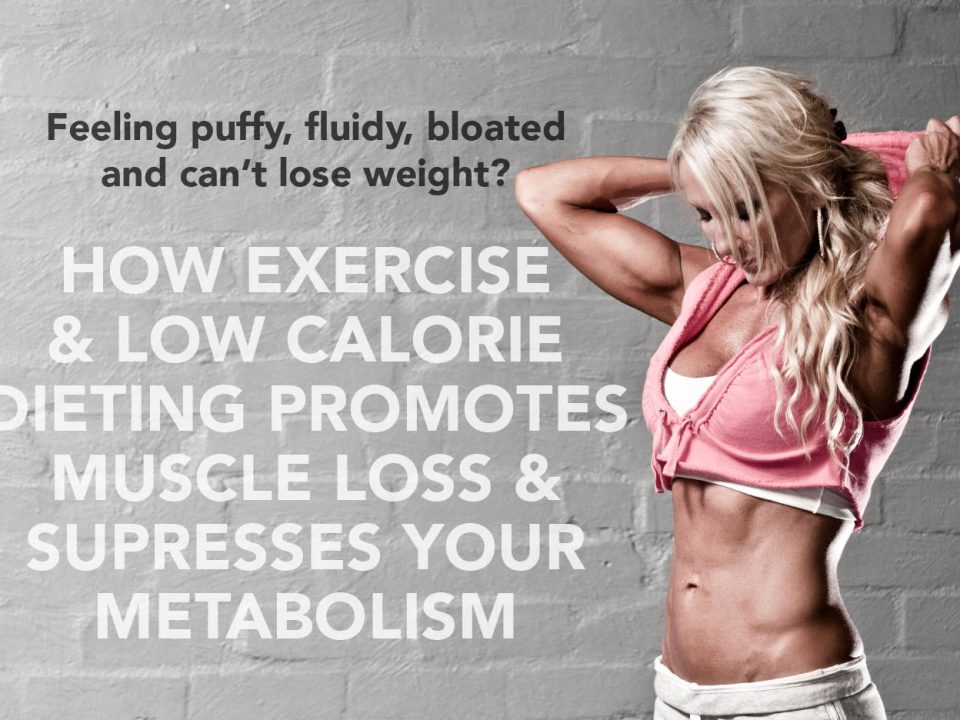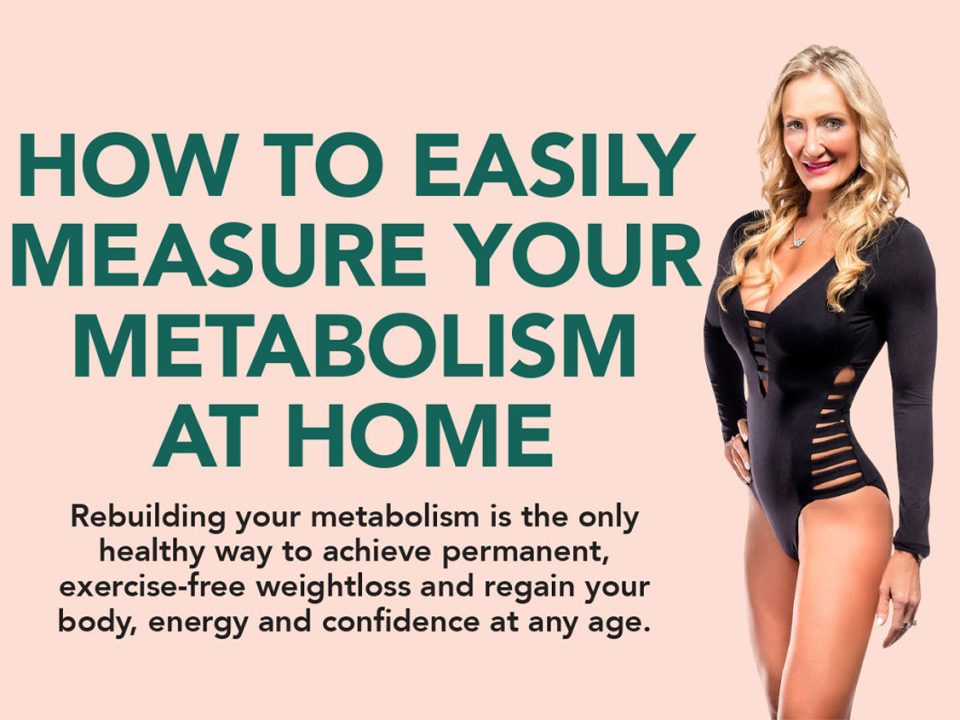
2022 BodyIQ Bikini Body Transformation 8 Week Weightloss Challenge
17/12/2021
The Epidemic Of Slow Metabolisms & Weight Gain
05/04/2023How Physical & Emotional Stress Makes You Overeat & Derails Your Weightloss Progress

Also known as emotional eating, stress eating involves using food as a coping mechanism to help you feel better. Typically, it has nothing to do with physical hunger and everything to do with soothing or suppressing uncomfortable feelings and situations and using food as a security blanket.
When you get stressed, your body enters the so called ‘flight or fight’ mode and increases stress hormones whilst it shuts down non-essential processes like metabolism and digestion.
“Most of the junk we eat when we feel stressed will be stored as fat! Slowing down your metabolism and increasing fat storage, is our body’s response to stress.”


When we’re feeling stressed, our body sends out cortisol, which makes you crave sugary-salty-fatty foods and overeat, because our brain thinks it needs fuel to fight whatever threat is causing the stress. In the short term, stress can be lifesaving if you need a burst of energy to respond to a threatening situation, but when cortisol remains chronically elevated, you could be at risk for some serious problems.
Some stress examples include; work and lifestyle stress, poor sleep, relationship stress, nutrient deficiencies, yo-yo dieting, fasting, drinking too much alcohol, blue light, hormonal imbalances, junk food and PUFA, excess estrogen, keto dieting, dysregulated blood sugar, acute and chronic illnesses and over-exercising whilst under-eating – because any activity that demands extra energy, be it physical, mental or emotional, above your baseline, induces a stress response in the body and kicks up hunger and cravings.
Exercise, despite popular belief, can be a stressor, especially if you’re already in a stressed state, hypometabolic and undernourished. Exercise artificially increases your metabolic rate through the elevation of adrenalin and cortisol. As soon as you stop, your thyroid is suppressed, metabolic rate reduced, cortisol eats away your muscle mass and basal metabolic rate will be lower than when you started. Adequate pro-metabolic carbs and calories can buffer this, but let’s face it, most of us reading this, are serial low-calorie-low-carb yo-yo dieters who have shunned fruit, dairy and opt for long black coffees and fake pasta in hope that one day we will finally get to see our abs.
Many people experience stress eating at one time or another. It could show itself as eating a bag of chips when bored or drinking a bottle of wine after a stressful day at work. However, when stress eating happens frequently or becomes the main way a person deals with their daily stressors, then their life, health, happiness, and weight can be negatively affected. Eating in response to stress can cause physical, mental, and emotional side effects, including overeating nutritionally bankrupt junk food which can lead to weight gain and higher risk of diabetes, obesity, heart disease and other chronic disease (more stress for the body!), and increased feelings of guilt, shame, and self-hatred.

Cortisol breaks down muscle, tissues, bone, and organs, destroys the immune system, creates nutritional deficiencies, fattens up the liver, increases abdominal fat, reduces stomach acid – increases acid reflux, raises blood sugar, destroys your gut, accelerates ageing, makes you retain water-salt (makes you look puffy), increases inflammation, make you gain weight, causes gastrointestinal and digestive problems, fatigue and hormonal imbalances. Continuously elevated cortisol can lead to diabetes, obesity, osteoporosis, hypothyroidism, chronic fatigue, insomnia, depression and anxiety.
Cortisol makes weightloss incredibly hard, as it suppresses your thyroid function – THE MASTER REGULATOR OF METABOLISM – and anything that reduces your thyroid function WILL MAKE YOU GAIN FAT.
Emotions, such as stress, are not the only triggers for emotional eating. Other common triggers include boredom, habit, fatigue, social influences, to feel better, nutrient deficiencies, under-eating and over-exercising and to rewarding yourself with treats.

4 SIMPLE STEPS TO STOP STRESS EATING:
- ASSESS IF IT’S HUNGER OR CRAVINGS: Cravings will often masquerade as hunger but are really something entirely different and are not a signal to ‘eat’, they are a signal to address the underlying emotion, situation, or mood. When you’re physically hungry, you don’t crave and obsess over one specific food, you’re in control of your food choices and you choose nourishing foods, which you eat mindfully, with zero guilt and you move on.
- IDENTIFY IF IT’S AN ENERGY DEFICIT: Food is fuel and if you don’t have enough of it in your tank to give you energy, help you recover and replenish you’ll feel run down, unmotivated, emotional, lethargic, foggy, and fatigued, and cravings and/or hunger will torment you. Make sure you are eating enough calories, protein and pro-metabolic carbs, avoid skipping meals, make sure your macro and micro nutrients are on point. Do a nutrition audit on cronomoter and adjust your diet so that your input supports your output.
- IDENTIFY THE EMOTIONAL TRIGGER: Before you reach for wine, chips, or chocolate, ask yourself ‘what else could this mean and what emotion is at the root cause?’. If you’re eating and you’re not hungry it might just be a bad habit or an emotion you’re trying to soothe; stress release, to feel better, soothe anger, cope with loneliness or isolation, sadness, anxiety, hormonal, PMS, relaxation etc. Dig deep and get to know yourself and your triggers.
- BE PREPARED: We all soothe with food occasionally so be one step ahead of yourself and REPLACE all the junk food in the house with WORTHY ALTERNATIVES that won’t derail your weightloss progress or your health. Some examples are; Pana or Halo ice-cream, Noshu treats, low calorie wine, Lindt Excellence 85% Dark chocolate, adrenal cocktail or coffee – YES coffee relieves stress when it has real dairy and honey or maple syrup in it (never black – as it increases stress hormones further!). Or, go for a walk, breathe using Dr Andrew Weil’s 4-7-8 method, have an Epsom salt bath or try yoga Nidra, brown bag breathing or journaling. Another great option is to hypno-meditate – choose a ‘cravings buster’ track and literally override the bad habit software with a new healthy one, e.g., substitute inhaling a Cadbury’s family block of chocolate with going for a walk or reaching for an adrenal cocktail instead. All of these help you slow down and refocus and going for a walk can release positive chemicals in your brain while lowering cortisol to dampen the stress response.


When you understand and pay attention to the ‘why’s’ of what your body is craving, you’ll have a better understanding of how to manage stress eating. Remember, when your body is craving due to stress and heightened negative emotions – it wants nutrients NOT empty calories – know the difference and stop band-aiding emotions and rewarding yourself with food – you’re not a dog!
Once you learn to recognise your triggers and the real reasons for your stress eating, you can move forward toward a healthier relationship with food and achieving your weightloss and health goals.
Article by Kinga Fourie
Certified Nutritionist, BodyIQ Founder & IFBB Figure Champion




